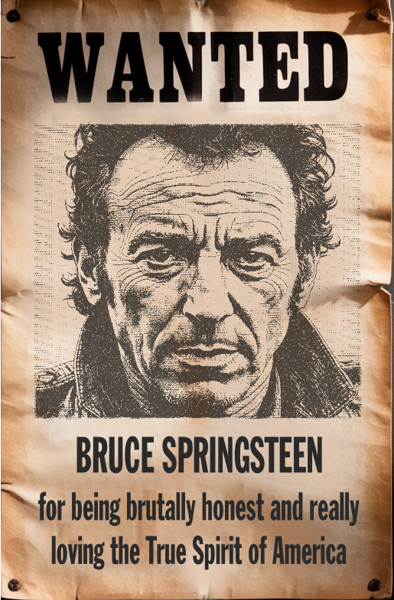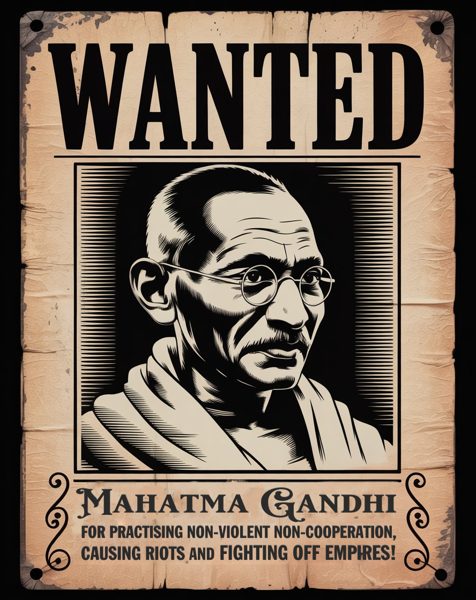Mahatma Gandhi
The radical inventor of Non-Violent Non-Cooperation.
Related albums

Bruce Springsteen
1 photo
The Creator of Non-Violence as Political Power
From his earliest days in South Africa organizing workers against oppression and apartheid, to his famous march to the sea to make salt in protest of the British Empire monopolizing a necessity of life, Gandhi was relentless, fearless, creative warrior, and public relations genius against tyrrany, oppression, totalitarianism and evil, fighting back by burning clothing, spinning his own thread, marching, fasting, refusing to pay fines, refusing to cooperate with superiority and injustice. His record of support for women does not stand the test of time, but it is the arrogant foe of empire we now celebrate and whose commitment we now need more than ever before. Like Martin Luther King who came after him, Gandhi had a talent for tripping up the legal system and making it work for the under-priveleged, the impoverished and those without a voice. Gandhi believed in community, the ashram, and printing uncensored news for the masses. He was a clever lawyer, an incediary publisher and he could take a beating. He was greatly loved, and also so deeply hated that he was shot to death at the age of 78 after his final fast for peace.
His philosophy and practice of non-violent civil disobedience (Satyagraha), significantly influenced movements for civil rights, human rights and freedom worldwide for generations after his death. He attempted to maintain an unwavering commitment to truth (Satya), integrity, and courage in confronting injustice. He championed social causes, including the fight against untouchability and advocating for the rights of the poor and women, however…
Also early in his life in South Africa, Gandhi expressed racist views towards Black Africans, using derogatory terms and supporting the idea of racial hierarchy. His views on women and sexuality have been criticized as misogynistic and problematic. And while he fought against untouchability, his stance on the caste system itself has been debated, with some arguing that his reforms were insufficient in addressing systemic cultural and religious bias. Moral absolutism concerning non-violence during times of war and violence is obviously quite debatable. Perspectives on Gandhi often depend what context or aspect of his life you are examining. While his achievements in the realm of non-violent resistance and social justice are undeniable, critics point to his flaws and problematic views, prompting a more nuanced and critical understanding of his legacy. But when you need to take down an Empire, there’s no better modern role model.
